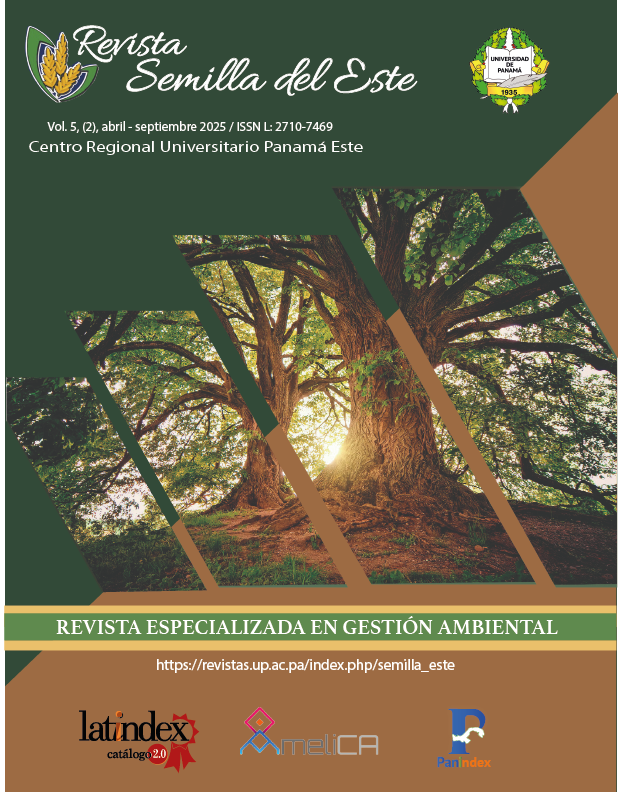

Copyright (c) 2025 Revista Semilla del Este

Este trabalho está licenciado sob uma licença Creative Commons Attribution-NonCommercial-ShareAlike 4.0 International License.
En este estudio se pretendió determinar la influencia de los entornos virtuales en el proceso de enseñanza-aprendizaje, en la educación ambiental a nivel superior. La población muestra fue de 50 estudiantes de tres grupos de UDELAS Azuero, quienes en su pensum académico tenían educación ambiental, a través de un seminario taller por cuatro semanas donde se abordaron temas sobre la educación ambiental, la cual pudo ayudarnos a mitigar el cambio climático y sus efectos en las sociedades. Se utilizó una metodología mixta que incluyó una investigación exploratoria en la cual se analizaron aspectos cualitativos y cuantitativos de la muestra, obteniendo datos estadísticos producto de las estrategias que se implementaron en esta investigación. Se desarrolló la integración de la educación ambiental en los Entornos Virtuales de Aprendizaje (EVA) a nivel superior y se observó cómo permitió el desarrollo de habilidades, saberes, valores y prácticas ambientales, así como la capacidad de que los estudiantes lograran ser resilientes y adaptarse al cambio climático. Se logró ver el impacto de la Educación Ambiental en EVA, donde se demostró que el 92.5% de los estudiantes comprendieron la importancia de la Educación Ambiental. Además, se logró que el 100% de los estudiantes identificaran el cambio climático como un problema real y que el 92.5% reconocieran que se requerían esfuerzos individuales y colectivos para ser mitigado y lograr adaptarnos para enfrentarlo.